If Amy Poehler’s Moxie had been around in the 1990’s, maybe life wouldn’t be as fucked up as it is today.
What do you remember watching in high school? The biggest flicks from my youth were American Pie, Dazed and Confused, Clueless, Mean Girls, and Bring it On. They were entertaining, and I still quote lines today, but the takeaway lessons were: boys and men have a hard time controlling their urges; to be a popular girl, you need to be pretty (preferably blonde), and don’t jerk off into pie (or do? I can’t recall which was recommended).
Consent, equality, and racism were never properly addressed. If anything, the films perpetuated rape culture and inequality, and representation was rarely considered—negative racial stereotypes were the norm. It gets worse if you start looking at the teen films from the eighties.
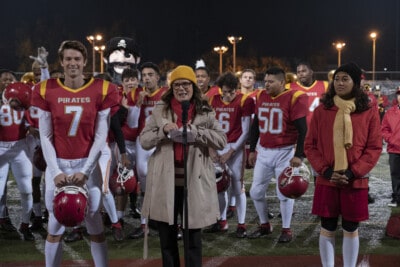
Patrick Schwarzenegger as Mitchell, Marcia Gay Harden as Principal Shelly, Sydney Park as Kiera in Moxie. Cr Colleen Hayes/NETFLIX © 2020
Moxie is different. It still has all the same elements that we’re used to seeing in a teen movie: the asshole jocks, the peppy cheerleaders, drama on the school’s front steps, an inept principal, sex for the first time—but through these familiar scenes, the students begin to notice inequities around them, find their voice, and use it to disrupt the system and make positive change.
The SNL “Sweater Weather” skit may always remain the first visual that comes to mind when we think of Amy Poehler, or maybe a drunk and stumbling Leslie Knope, but Poehler has long been invested in empowering women and girls. Amy Poehler’s Smart Girls is now a community with millions, and is guided by the principle that one changes the world by being themselves. Moxie—while inspired by the book of the same title by Jennifer Matheiu—is an extension of this. Poehler directing it makes a lot of sense.
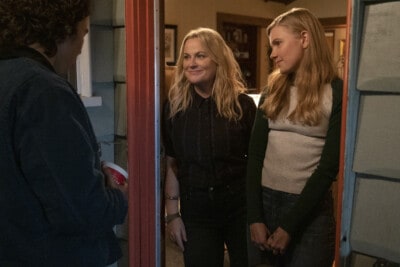
Amy Poehler as Lisa/Director/Producer, Hadley Robinson as Vivian in Moxie. Cr Colleen Hayes/NETFLIX © 2020
In it, she plays the mom to 16-year-old Vivienne (Hadley Robinson). Curious to know what her mom was like at her age, Vivienne goes digging for clues and unearths an old box full of paraphernalia from her mom’s Riot Grrrl days from the 1990s. The treasures she discovers, along with a impactful encounter with new girl Lucy (Alycia Pascual-Peña), who made Vivienne realize she didn’t have to just accept bad behaviour, inspires her to start an anonymous zine (a foreign concept for her social-media addicted peers).
In Gossip Girl fashion, Vivienne shares stories about high school life, but not about relationship breakups or friendship scandals, but uses the zine “Moxie” to expose injustices and inequities within the school system.
The zine immediately attracts attention from her peers and becomes a catalyst for collective action, the first being a protest about crop tops, or the right to wear what you want and not be blamed and shamed for stirring arousal in others.
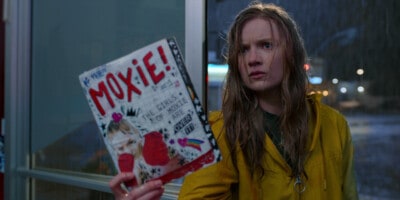
Hadley Robinson as Vivian in Moxie. Cr /NETFLIX © 2020
The crop-top scene immediately had me flashing back to the crop-top protest that happened in Toronto in 2015 (which feels like yesterday). Like Vivienne, Etobicoke School of the Arts student Alexi Halket was fed up with girls being told how to dress, and staged a protest on the front steps of her school, or “Crop Top Day”.
All the major papers and networks covered it (the news even crossed borders and landed in People Magazine) but did it make a difference? Just last month, a 17-year-old student in Kamloops, B.C was sent home from school for wearing a lace black dress over her turtleneck, because it was “inappropriate”, and made her teacher (a grown man, an authority figure) feel uncomfortable. The story was covered by the CBC and there are now over 1200 comments.
The energy of the crop-top protest in Moxie is palpable, and along with news stories, will remind audiences of moments in youth where power was found. But this isn’t the climax, and as the film continues, tougher material is tackled as more students begin to find the courage to speak up. Of course, the film is also about a mother and daughter getting to know each other better, and all the friendships and romances that happen, or fall apart, as the notoriety of Moxie takes off.
Endearing, energizing, and refreshing, are some of the words we’d use to describe it. But mostly we want to share it with the teens of today. Moxie is exciting, heartwarming, and loaded with positive messages. The spirit of the story is captured beautifully by the young cast, whose talents shine. The future is bright.
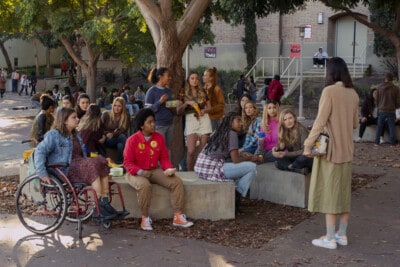
Moxie. NETFLIX © 2020
To keep the conversation going I connected with Alexi Halket, who is now a 24-year-old musician, to invite her to join us for a live IG chat this Thursday. I’m curious to see what she thinks of Moxie, and what she remembers from that moment in time in her senior year. What effect did the protest have on the student body? How did it shape her journey? What changes (or not) has she noticed since?
Moxie is now available to watch on Netflix. Check it out and join our IG chat this Thursday at 8pm.


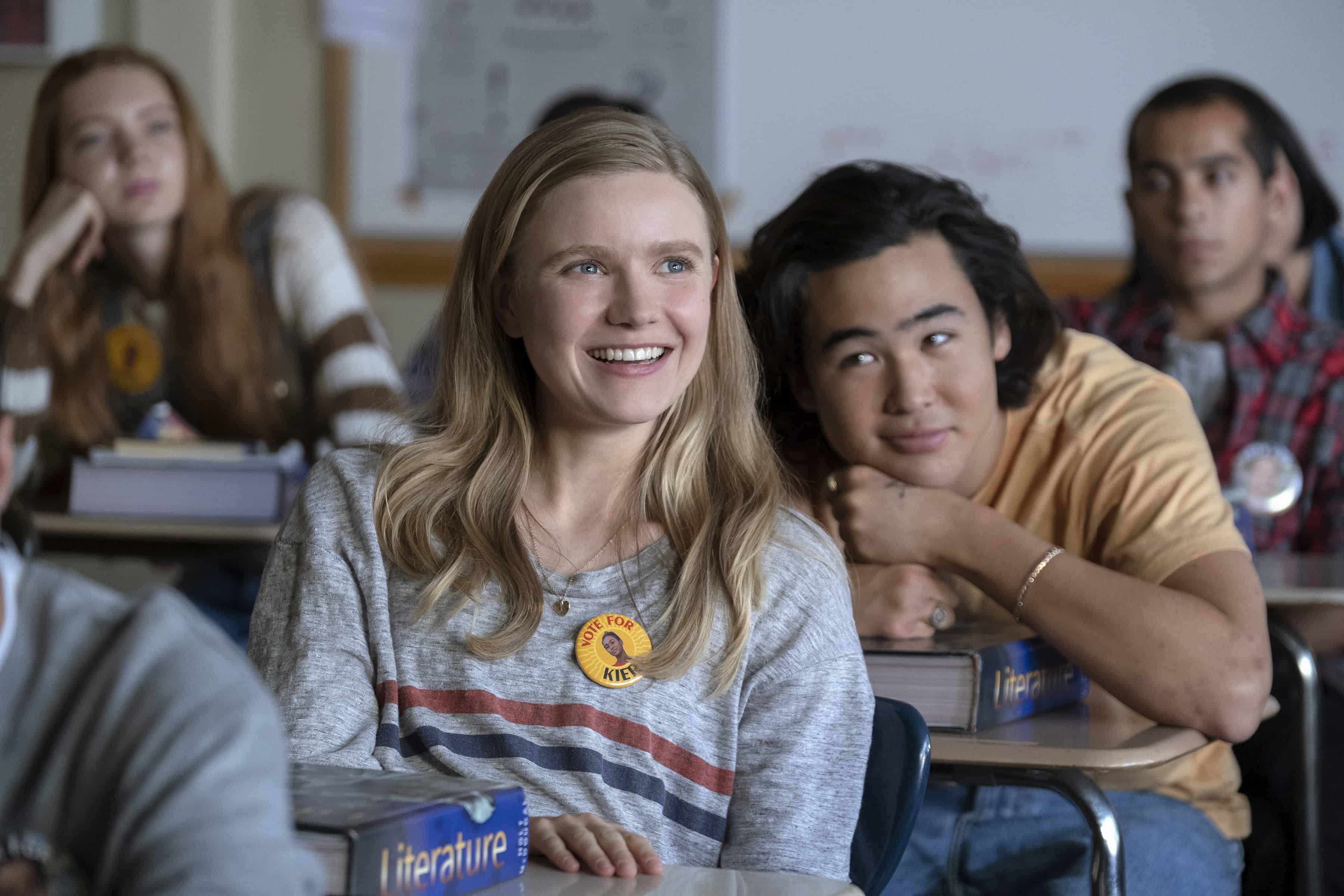
 Follow Us On Instagram
Follow Us On Instagram
